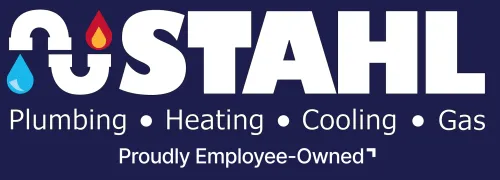Nothing is worse than dialing down the thermostat settings on your home's air conditioner on a hot day only to find your AC not blowing cold air.
The warm air emanating from your AC system can stem from various factors, from a basic dirty air filter to leaks in the ductwork. Even if you've taken all precautions, air conditioning systems might occasionally malfunction, causing discomfort in your house.
But don't worry, because where there's a problem, there's always a solution! You may take simple steps to avoid these setbacks in your house.
Reasons Why Your AC Unit Is Not Blowing Cold Air And What Should You Do?
Often, the best method to tackle an emergency AC repair is to seek professional assistance. However, some of the issues with your air conditioner are simple to fix. You might only need to replace the air filters or hose down your outside unit. Other issues - such as leaking ducts and refilling refrigerants - are more difficult to resolve.
- Dirty or Clogged Air Filter: A filthy or clogged air filter is a common source of warm air from your AC unit. It is critical to maintain a free flow of air through your AC system; therefore, change the air filter if it is dirty. Replacing/cleaning the filter and a periodic AC tune up by a competent contractor will allow your system to work more efficiently and prevent larger problems from arising. A clean air filter is a simple and low-cost technique to guarantee that you aren't blocking airflow, which will help your system work optimally.
- Issues With The Thermostat: If you notice your home's air conditioner blowing warm air, it could be due to thermostat issues. When antique dial-type units are poorly calibrated, this happens frequently. If you still have the air conditioner manual, double-check your thermostat settings. If the problem persists, you may need to update or calibrate your thermostat. Consider using a programmable thermostat in that case. Older control systems are more prone to failure. With a programmed one, you can maintain the temperature in your home consistently at all times. Your energy savings will make the cost of getting one worthwhile.
- Leaks in the Ductwork: If your HVAC system delivers air in your home using traditional ductwork, air can readily leak out of the ducts and into the walls. Hot air can enter and circulate throughout your home because your ducts are placed in heated, unconditioned areas such as the attic and walls. When a water leak is detected, installing an overflow switch automatically shuts down the entire system, saving you a lot of worry. Call your AC specialist to inspect the ducts, make repairs, and seal any holes.
- Low on Refrigerant: If your air conditioner is blowing out warm air, it could indicate that the refrigerant levels in your unit are running low. This typically means that your system has a refrigerant leak. A refrigerant is required to keep your device running at peak efficiency. It's the fluid that absorbs heat and humidity from the surrounding environment. Finding and repairing leaks can be time-consuming and costly. If not addressed promptly, it may cause damage to the compressor motor, potentially resulting in smoke pouring from an air conditioner. Hissing or bubbling noises and ice formation on the outside unit are symptoms of a leaking refrigerant. If so, your air conditioner keeps running and blows heated air to match the thermostat setting. In that case, contact your technician immediately, as it must be replaced immediately.
- Broken Capacitor: It could be the capacitor if your air conditioner is working but not blowing chilly air into your home. Warm air may be coming out of your vents if your air conditioner capacitor is faulty. Because the compressor cannot start, the air conditioning system cannot extract heat and transport it outdoors. As the blower motor turns on, the warm air in your ductwork begins circulating. If you believe that your AC capacitor is faulty, you should have it changed as soon as possible by a skilled expert. Otherwise, you may have to pay for pricey repairs later on. The cost of replacing an AC capacitor varies based on the make and model of your air conditioner and the type of capacitor that needs to be changed. In most circumstances, however, the replacement cost will be hundreds of dollars.
Whether you need an air conditioner repair service or a simple AC tune-up, our team at Stahl Plumbing is ready to help! Since 1950, we've been committed to serving Pittsburgh residents and businesses with dependable products and services at reasonable costs. So, if you need air conditioner service, contact us online to schedule an appointment now!

